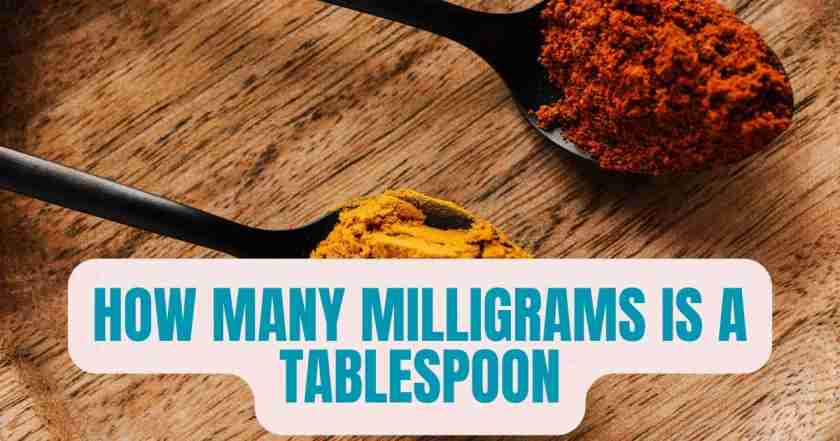The conversion from tablespoons to milligrams is a multifaceted process that hinges on the density of the material in question. Water, with its consistent density, serves as a baseline for understanding the basic concept of volume to weight. However, when dealing with substances like olive oil or dry ingredients such as flour, the specific density of each material must be considered for accurate conversions. It’s crucial to recognize the variability in density based on external factors and to prioritize precision in measurement, especially in scientific or culinary applications where accuracy is paramount.
How Many Milligrams (mg) are in a Tablespoon
Water is often used as a baseline for volume-to-weight conversions due to its consistent density.
- One tablespoon is approximately 14.79 milliliters (or) 14,790 mg.
Since water has a density of about 1 gram per milliliter, 14.79 milliliters of water is roughly equivalent to 14.79 grams, or 14,790 milligrams. This straightforward conversion is useful for understanding the basic principle of volume to weight.
Olive Oil Conversion
The conversion becomes more nuanced when dealing with substances like olive oil, which has a different density than water. The density of olive oil is approximately 0.92 grams per milliliter. To convert tablespoons to milligrams for olive oil, one must take into account this density. Using the same 14.79 milliliters as an example, the weight of 1 tablespoon of olive oil is approximately 13.56 grams or 13,560 milligrams.
Dry Ingredients: Flour Conversion
When dealing with dry ingredients like flour, the conversion requires consideration of a different density. The density of flour can vary, but for general purposes, it is often considered around 0.5 grams per milliliter. To convert tablespoons to milligrams for flour, the same 14.79 milliliters would yield a weight of approximately 7.39 grams or 7,390 milligrams.
General Principle: Density Matters
The key takeaway is that the conversion from tablespoons to milligrams is contingent upon the density of the substance. Different substances have different densities, affecting the weight of a given volume. Understanding the density of the material in question is crucial for accurate conversions.
Factors Influencing Density
It’s essential to recognize that density is not a fixed value and can be influenced by various factors. Temperature, pressure, and impurities can impact the density of a substance. In precise scientific or culinary applications, it’s advisable to consider these factors for the most accurate measurements.
Precision in Measurement
For accurate conversions, especially in scientific or culinary contexts where precision is vital, the use of weighing scales is recommended. Measuring by volume alone, using tablespoons, can introduce variability due to factors like how ingredients settle or how they are packed. Weighing provides a more accurate representation of the actual mass.








